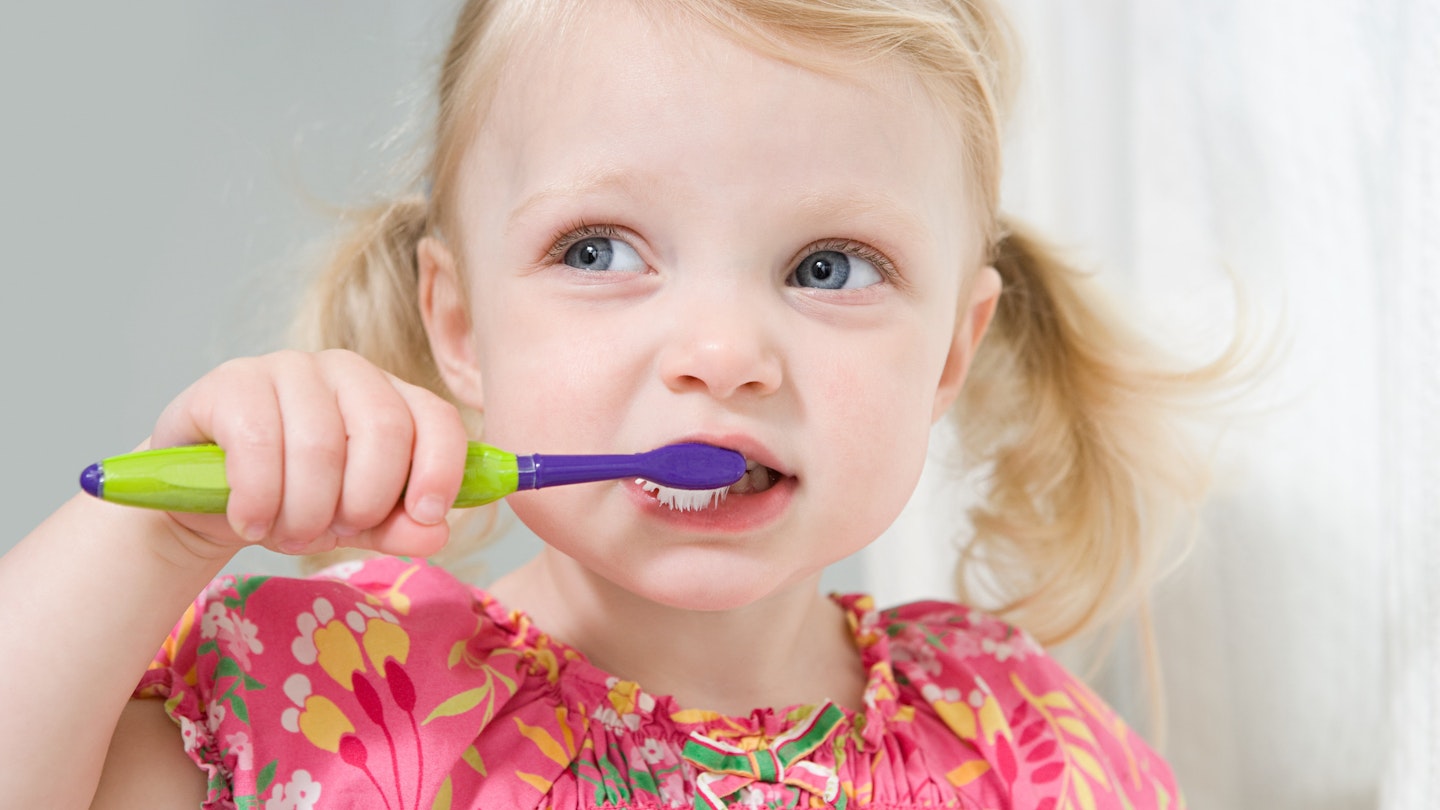Children under three should only drink water and milk to prevent tooth decay, a report reveals.
According to the survey, published today (by Public Health England (PHE), there was a dramatic variation of tooth decay prevalence ranging from 2% to 34% across the country.
The report found that those children affected had an average of three decayed teeth due to the disease.
READ: IS FRUIT JUICE BAD FOR YOUR CHILDREN?
Tooth decay is caused by consuming too many sugary foods and drinks and ‘Early Childhood Caries’ was the type of decay most prevalent in toddlers.
The disease can be prevented by eating a healthy balanced diet which limits the amount of foods and drinks high in sugar, and also by brushing teeth for two minutes twice a day, once before bed, using fluoride toothpaste.
READ: HOW TO PREPARE YOUR CHILD FOR A TRIP TO THE DENTIST
Dr Sandra White, Director of Dental Public Health at PHE, said: ‘Tooth decay is an entirely preventable disease, which can be very painful and even result in a child having teeth removed under general anaesthetic, which is stressful for children and parents alike.
‘Thankfully, tooth decay in children can be prevented by following a healthy lifestyle; by parents and carers reducing the amount of sugary foods and drinks they give their children and supporting them to brush their teeth twice a day with a fluoride toothpaste, especially just before bedtime.’
READ: HOW TO STOP YOUR CHILD NEEDING A FILLING
Mel Wakeman, nutrition expert and Senior Lecturer in Applied Physiology at Birmingham City University, added, ‘Ideally children should be encouraged to move from a bottle to a cup from the age of one but many children can find this transition difficult (as do parents) because the bottle is often a great source of comfort and less messy! Teaching a child to use a straw can also help.’
It is also advisable to regularly take toddlers to the dentist, which is free of charge for children.
Are you strict about sugar with your child? Let us know in the comments box below.
